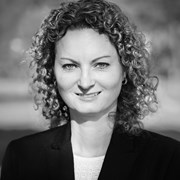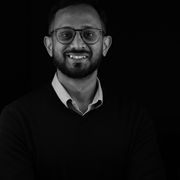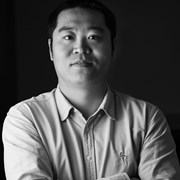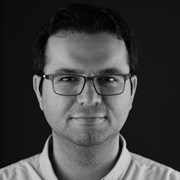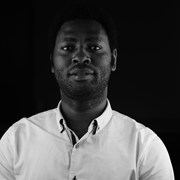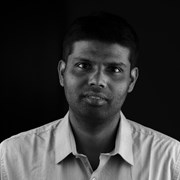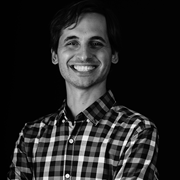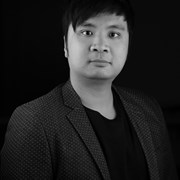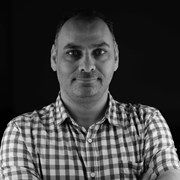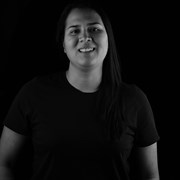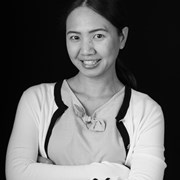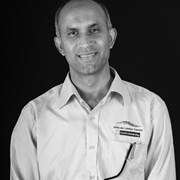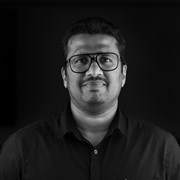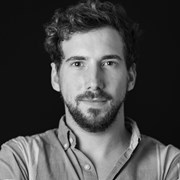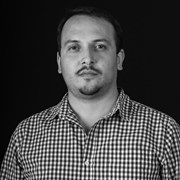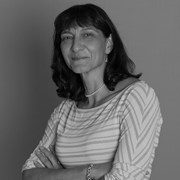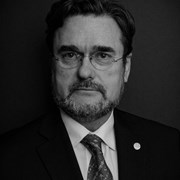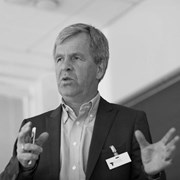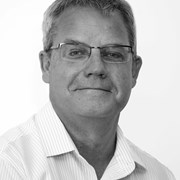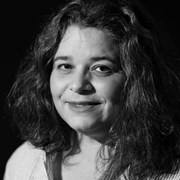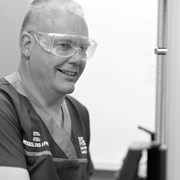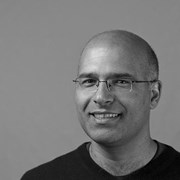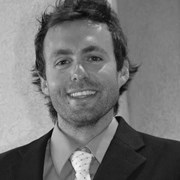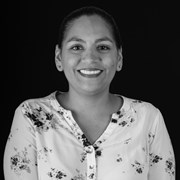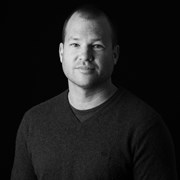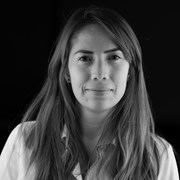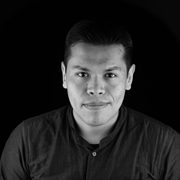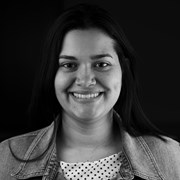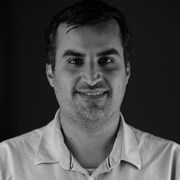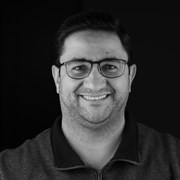Our people
Our team
Our team combines industry experience and scholarly expertise.
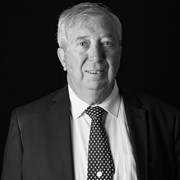
Brian Kinsella
Director and Emeritus Professor
Electroanalytical chemistry, multiphase technology, internal pipeline corrosion, scale/corrosion inhibitors and electrochemical techniques.
View profile
Brian Kinsella
Director and Emeritus Professor
Professor Kinsella's early career was in the field of electroanalytical chemistry. He was the Distinguished Visiting Scientist, National Research Council of Canada in Ottawa (1987-1988) where his work was centred on ultra-trace analysis of heavy metals in seawater using anodic stripping voltammetry. Soon after returning to Perth he moved into corrosion science and has worked in the area of corrosion in oil and gas production for over 30 years. He founded and directed the Western Australian Corrosion Research Group (WACRG) at Curtin University (1987-2007) which has evolved into the present Curtin Corrosion Centre. The Centre is widely recognised for its services to industry. Professor Kinsella was instrumental negotiating with Woodside and Chevron to establish the inaugural Chevron, Woodside Chair in Corrosion in 2007.
He retired from Curtin to take up the prestigious position of Stocker Visiting Professor, Ohio University (2008-2011), where he worked at the Institute for Corrosion and Multiphase Technology, mentoring graduate students and developing new methods to study the mechanical properties of corrosion inhibitor films. He was invited to return to Curtin in October 2013, where he directed the applied research and testing for industry and worked closely with senior research staff. His main areas of interest are internal pipeline corrosion, scale/corrosion inhibitors and electrochemical techniques where he has authored and co-authored over 100 journal publications and over 300 confidential reports for industry. He is a recipient of the Australasian Corrosion Association (ACA) Medal for outstanding scientific or technological work in the field of corrosion in Australasia, an ACA member and a NACE Fellow. His NACE Fellow Honour, Excellence Award, was given for sustained contribution made to corrosion control well recognised over the years. Brian is a member of the NACE Technical Working Group for Mitigation of UDC and the European Cooperative Group on Corrosion Monitoring of Nuclear Materials (ECG-COMON).
Professor Kinsella retired from Curtin University in June 2018 and was awarded the title Emeritus Professor by the Council of Curtin University in recognition for distinguished service, strategic leadership of the Curtin Corrosion Centre, and vision and commitment to the University. Professor Kinsella remains active in assisting his former staff and students in the Corrosion Centre at Curtin University and as a corrosion consultant to industry.
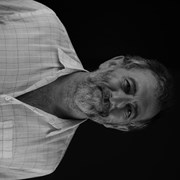
Vladimir Golovanevskiy
Professor
Engineering materials / materials degradation, ore abrasivity, wear management, thermal physics, strong magnetic fields in minerals processing.
View profile
Vladimir Golovanevskiy
Professor
Professor Vladimir Golovanevskiy holds a PhD in Thermal Physics and Heat Engineering (Engineering Materials focus) from the Ukraine Academy of Sciences and BEng (Mechanical) with Welding Technology focus degrees from Kharkiv Polytechnic University, Ukraine. He worked in a variety of roles in Australia, Russia, Ukraine, and Germany in a range of industries from heavy engineering for underground mining to International Space Program to non-metallic composite materials to artificial gems manufacture to cryogenics and is currently a Research Professor at the Curtin Corrosion Centre.
Prior to joining the Centre, as the inaugural Director of the Rio Tinto Centre for Materials and Sensing in Mining at Curtin – i.e. the largest industry-funded research centre in the University's history at the time – Vladimir championed a number of bulk materials handling and sensing step-change technology development projects for the minerals industry. Subsequently, as an academic with the Western Australian School of Mines he developed and taught materials science, thermodynamics, and engineering mechanics undergraduate and post-graduate courses, supervised HDR students, carried out applied R&D, and provided consultancy services to industry.
In addition to academic publications, Professor Golovanevskiy has authored / co-authored 18 patents in diverse fields including composite materials technology, applied thermal physics, and minerals processing and has written over 100 confidential reports on wear management and engineering materials degradation matters for various Australian and overseas industry groups. Vladimir is a Visiting Professor of Advanced Materials and Materials Wear at Tomsk State University and Visiting Professor of Materials at the High Voltage Research Institute at Tomsk Polytechnic University, Russia, and an Honorary Senior Research Fellow at the National Aerospace University in Kharkiv, Ukraine.
Professor Golovanevskiy has wide professional networks both nationally and globally, with research interests in engineering materials and materials degradation, applied thermal physics, applications of strong magnetic fields in minerals processing, and wear management / ore abrasivity in mining & bulk materials handling. He is actively engaged in building long-term, sustainable collaborative relationships with industry and research partners nationally and internationally.
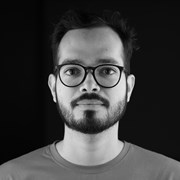
Juan Diaz
University Associate
Hydrate formation in the presence of corrosion products and scales.
View profile
Juan Diaz
University Associate
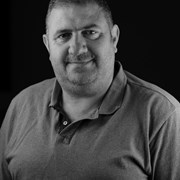
Yousuf Abdulwahhab
Research Assistant
Corrosion resistant alloys, high-temperature and high-pressure testing, localised corrosion, corrosion inhibitors, cathodic protection, electrochemical techniques, surface analysis and education.
View profile
Yousuf Abdulwahhab
Research Assistant
Dr Yousuf Abdulwahhab is a Research Assistant at Curtin Corrosion Centre. He obtained his bachelor's and master's degree from the School of Engineering, Department of Chemical Engineering at Baghdad University, Iraq. His PhD and master's research focused on corrosion engineering. In 2021, he earned his Doctor of Philosophy degree in Chemical Engineering from Curtin University, Australia. His dissertation was on “Investigations of corrosion effects at high temperatures and high-pressure conditions”.
Yousuf has been working on corrosion since 2014. On his PhD research, he studied the nature of the passive film formed on 316L Stainless Steel and its protective mechanism in oil and gas industry where anaerobic CO2 (carbonic acid) environments exist as well as the effect of different CO2 partial pressure in high temperature and pressure environments. Then the result compared with passive film formed on 1018 carbon steel with different corrosion inhibitor concentration and evaluate of corrosion inhibitor performance. His research interests include high-temperature high-pressure corrosion, localised corrosion, corrosion mechanism, and corrosion monitoring using electrochemical methods.
Prior to joining Curtin Corrosion Centre Yousuf has over 10 years of teaching and research experience at Baghdad University, and he has worked as a lecturer on heat and mass transfer.
In the current role at the Curtin Corrosion Centre, he has been involving and working several industrial projects relating to corrosion in the oil and gas industry and chemical qualifications using applicable national and international standards in the corrosion or related fields.
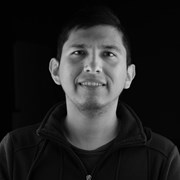
Fernando Perozo-Cediel
Research Assistant
LIMS, CMMS, QFM, logistics, procurement, automation, modelling, simulation.
View profile
Fernando Perozo-Cediel
Research Assistant
Fernando Perozo-Cediel was a volunteer and became a Research Assistant at Curtin Corrosion Centre. He obtained Master Professional of Engineering with major in Chemical Engineering at Curtin University in 2021. He was involved in modelling and process simulation projects during his academic life. His last work consisted of a Monte Carlo simulation study of the adsorption of hydrogen and methane in a graphene slit-pore.
Automation and digitisation are also interests of him. He is on a mission of value creation in the procurement, purchasing, maintenance and calibration processes held at the Centre.
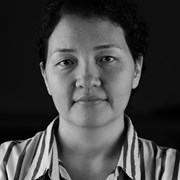
Farzaneh Farivar
Research Fellow
Microbiologically influenced corrosion, concrete corrosion, analytical chemistry, nanomaterials, biochemistry, biophysics, hiking.
View profile
Farzaneh Farivar
Research Fellow
Farzaneh Farivar is a multidisciplinary scientist with around 10 years of experience in academic research and teaching. She finished her BSc in cellular and molecular sciences, MSc and PhD in biophysics in 2013 at University of Tehran. After a few years of teaching in universities in Iran, in 2018, she moved to Australia to join the ARC Research Hub for Graphene Enabled Industry Transformation at the University of Adelaide as a postdoc researcher where she worked on multiple fundamental and industrial projects. Then in 2022, she joined Curtin Corrosion Centre to start her new role as a Research Fellow. Currently, she is mainly involved with a joint industry project (JIP) for 'Preventing and managing microbiologically influenced corrosion (MIC) for the oil & gas industry - a pragmatic holistic approach,' and 'protocol development for intelligent monitoring of concrete corrosion in marine environments,' funded by SmartCrete CRC and partners.
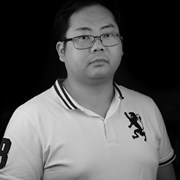
Darwin Hartono
Research Assistant
FDM 3D printing, 3D Modelling, 3D Rendering, Mechanical Engineering, Ceramic fracture toughness testing, Vickers hardness testing
View profile
Darwin Hartono
Research Assistant
Darwin Hartono is a Research Assistant at Curtin Corrosion Centre working on the mechanical design and engineering required for a new project or facility. Darwin is a Mechanical Engineer who is specialised in mechanical design, 3D modelling, drafting, and rendering.
Darwin utilised his engineering skills to assist in the design of the front-end engineering (design, 3D modelling and rendering of the facility) on the first corrosion flow loop facility in Curtin Corrosion Centre.
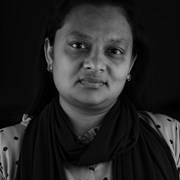
Adeeba Hussain
Research Assistant
Microbiology, molecular biology, biotechnology, microbiologically influenced corrosion, corrosion inhibition
View profile
Adeeba Hussain
Research Assistant
Adeeba Hussain is a Research Assistant at Curtin Corrosion Centre. She is an enthusiastic Microbiologist with over 6 years’ experience in Molecular Biology, Environmental Microbiology and Biotechnology. Previously, she worked as a Microbiologist in the Australian Laboratory Services and as a Laboratory Assistant in the University of New South Wales.
Adeeba achieved her Master degree from Tokyo University of Agriculture & Technology, Japan. During her masters, she studied thiocyanate degradation by environmental bacteria. She cloned a gene of a novel thiocyanate hydrolase enzyme in to E. coli and characterised the enzyme.
Currently, she is working in different projects related to Microbiologically Influenced Corrosion (MIC) to investigate microbial population in biofilm by molecular biology analysis. Research is her passion and she is keen to study microbial involvement in corrosion and inhibition of MIC.

Malwattage Chandramalika Rukmali Peiris
Technical Operations Coordinator
Electroanalytical techniques, atomic force microscopic techniques, surface modifications, sample characterisation, analytical chemistry, nanomaterials.
View profile
Malwattage Chandramalika Rukmali Peiris
Technical Operations Coordinator
Dr Malwattage Chandramalika Rukmali Peiris obtained her Doctorate degree at Curtin University, Western Australia in 2020 as a recipient of a PhD scholarship (CIRPS). She obtained her first degree in chemistry from the Institute of Chemistry Sri Lanka in 2009. She holds a MSc degree in Analytical Chemistry and MPhil in Electrocatalyst from the University of Peradeniya, Sri Lanka in 2010 and 2018, respectively.
Malwattage has been working on electrochemistry-related research since 2010. In her M.Phil., she investigated different metal macrocyclic complexes as electrocatalysts which can convert carbon dioxide into useful chemicals. During her Ph.D, most of her Ph.D research work was published in top-tier chemistry journals including Journal of the American Chemical Society (IF: 14.6), ACS Applied Materials and Interfaces (IF: 8.4) and Chemical Science (IF: 9.5). She was also able to collaborate with other researchers in the department due to her expertise with high-end analytical instruments used in this field, which resulted in 12 high-quality co-authored publications. All these publications present novel developments of advanced materials for the manufacture of nanoelectronics. In 2019, she was invited to present in the world’s leading research conferences (The Electrochemical Society (236th ECS Meeting), The 20th International Union of Materials Research Societies–International Conference in Asia) in advanced materials due to the innovative outcomes.
During her PhD, she made a breakthrough by engineering a nanoelectronic device with record stability in terms of stability and substrate material (Peiris et al, 2019, J. Am. Chem.Soc.). Malwattage was awarded by the Kagi-Alexander Higher Degree by Research Publication Award in 2019 by Curtin University in recognition of this outstanding discovery and academic performance. Dr Malwattage is well-trained in surface modifications, scanning microscope and atomic microscopic techniques. Her field of expertise are electrochemistry, surface chemistry and material chemistry.
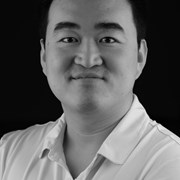
Peng Qin
Research Associate
Electrochemical corrosion and advanced microstructural characterisation on additive manufactured mantellic materials.
View profile
Peng Qin
Research Associate
Dr Peng Qin is a Research Associate at the Curtin Corrosion Centre. He obtained his bachelor's degree at Curtin University in 2016, and completed his master's and PhD degrees (with ECU Higher Degree by Research Scholarship) at Edith Cowan University in 2022. His PhD and master's research were focused on corrosion behaviour and mechanism of metallic biomaterials produced by laser powder bed fusion (also part of additive manufacturing). After joining Curtin Corrosion Centre, he will be working on the industrial projects involved with metal-based additive manufacturing.
Prior to joining Curtin Corrosion Centre, Peng also worked at Edith Cowan University on an industrial project for oil and pipe company, and co-supervising PhD and master students. During his past research, he gained expertise in electrochemical corrosion, advanced microstructural characterization (e.g., TEM, SEM, FIB, XPS, XRD), mechanical testing, and 3D printing.
Some of his recent publications include:
P. Qin, L.Y. Chen, Y.J. Liu*, C.H. Zhao, Y.J. Lu*, H. Sun, L.C. Zhang*, Corrosion behavior and mechanism of laser powder bed fusion produced CoCrW in an acidic NaCl solution, Corrosion Science, 213 (2023) 110999.
X. Wang, P. Qin*, L.Y. Chen*, H. Sun, L.C. Zhang*, Corrosion behavior and mechanisms of the heat-treated Ti5Cu produced by laser powder bed fusion, Corrosion Science, 221 (2023) 111336.
X. Wang, P. Qin, H. Sun, L.C. Zhang*, Improved corrosion and long-term immersion behavior in 3.5 wt% NaCl solution of laser powder bed fusion produced Ti5Cu after heat treatment, Advanced Engineering Materials, 25 (2023) 2300526.
Y.W. Cui, L.Y. Chen*, P. Qin, R. Li, Q. Zang, J. Peng, L. Zhang, S. Lu, L. Wang*, L.C. Zhang*, Metastable pitting corrosion behavior of laser powder bed fusion produced Ti-6Al-4V in Hank’s solution, Corrosion Science, 203 (2022) 110333.
P. Qin, L.Y. Chen*, Y.J. Liu, Z. Jia, S.X. Liang, C.H. Zhao, H. Sun, L.C. Zhang*, Corrosion and passivation behavior of laser powder bed fusion produced Ti-6Al-4V in static/dynamic NaCl solutions with different concentrations, Corrosion Science, 191 (2021) 109728.
P. Qin, L.Y. Chen, C.H. Zhao, Y.J. Liu, C.D. Cao*, H. Sun, L.C. Zhang*, Corrosion behavior and mechanism of selective laser melted Ti35Nb alloy produced using pre-alloyed and mixed powder in Hank’s solution, Corrosion Science, 189 (2021) 109609.
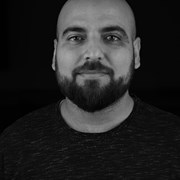
Naveed Hassan
Research Associate
Materials characterisation, thermal characterisation, energy storage, corrosion mitigation strategies, damage mechanisms.
View profile
Naveed Hassan
Research Associate
Naveed is a Research Associate for the Curtin Corrosion Centre, utilising his engineering and research expertise to various industrial research projects related to corrosion and materials.
Naveed attained his bachelor’s degree in chemical engineering from Ghulam Ishaq Khan (GIK) Institute of Engineering Sciences and Technology, Pakistan. He also completed a Master of Philosophy (MPhil) in chemical and metallurgical engineering from Murdoch University, Perth Australia. In his master’s degree, he focused on energy storage materials and tackled various challenges in energy storage materials, such as corrosion issues, lower thermal conductivity and leakages, and successfully presented effective solutions to overcome these issues. He has strong expertise in materials characterisation, utilising various techniques such as SEM/EDS, XRD, XPS, and FT-IR. Naveed is proficient in thermal characterisation of materials using DSC, STA, and TGA. He also holds a good publication record in high-quality peer-reviewed journals.
Naveed has extensive previous industrial experience from prestigious firms in Risk Based Inspection (API 580), corrosion mitigation strategies, damage mechanism, identification of corrosion loops, asset integrity and reliability, and coatings assessment using various national and international standards.
Naveed holds NACE Senior Corrosion Technologist Certification, and many professional trainings related to corrosion which validate his qualifications as a highly skilled corrosion engineer.
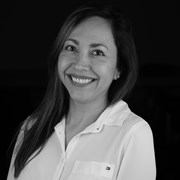
Erika Suarez Rodriguez
Research Fellow
Microbiologically influenced corrosion, environmental microbiology, under-deposit corrosion, corrosion inhibition, quality management systems.
View profile
Erika Suarez Rodriguez
Research Fellow
Erika is currently a Research Fellow at the Curtin Corrosion Centre (CCC), Curtin University, Australia. She brings to the role over a decade of diverse experience in microbiologically influenced corrosion (MIC), bioremediation, environmental microbiology, and quality-management systems.
She earned her Doctor of Philosophy degree with a focus on the study of under-deposit corrosion of steels in the presence of microorganisms at Curtin University. Her bachelor’s degree in Microbiology was obtained from the Universidad Industrial de Santander, Colombia.
During her tenure at the Colombian Petroleum Institute (ICP)-ECOPETROL, she participated in Laboratory operations, gathering experience in MIC and bioremediation within the framework of biotechnology and laboratory bioassays. These roles fortified her comprehension of ISO/IEC 17025 standards pertinent to laboratory quality management.
Erika's primary research interest lies in studying the interaction between MIC-related microorganisms with deposits and the efficiency of corrosion inhibitors under this complex environment. Her doctoral research was instrumental in offering new perspectives on how the under-deposit corrosion (UDC) phenomenon of carbon steel occurs in an environment with biological content. As a Postdoctoral Research Fellow at CCC, she is actively engaged in the Joint Industry Project (JIP) titled 'Preventing and Managing MIC for the Oil & Gas,' as well as part of corrosion mitigation industry-funded projects.
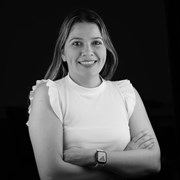
Yurany Sanchez Torres
Engineer (Corrosion)
Construction; maintenance; integrity assurance.
View profile
Yurany Sanchez Torres
Engineer (Corrosion)
Yurany is a Materials Engineer from Colombia with +7 years of experience in the oil and gas industry. Her expertise includes construction, maintenance, and integrity assurance of static equipment such as piping, pipelines, storage tanks, pressure vessels, and floating cells, among other metallic structures. Yurany's focus has been on supporting operators to evaluate the fitness and suitability of pressure vessels and atmospheric tanks to ensure their safe re-entry into service. She has also been certified as an NDT Level II inspector of welded joints with the expertise to assess pipeline defects reported by ILI tools. Yurany is proficient in handling international standards such as API, ASTM, ASME, ISO, and NACE.
During her role as QAQC & NDT engineer, Yurany undertook key responsibilities in construction and maintenance of components for storage and processing. This involved rigorous inspection and testing of materials to verify compliance with client requirements. She also oversaw the critical phases of inspecting surface preparation and coating application in pipelines and pressure vessels. Yurany reviewed construction dossiers, which included drawings, specification sheets, and blueprints. Additionally, as an integrity engineer, she assessed anomalies and provided recommendations for repair methodologies.
In June 2021, Yurany joined the Curtin Corrosion Centre (CCC) in the role of Engineer (Corrosion), where she has been supporting research teams overseeing critical industry and academic corrosion research projects, including material characterisation, coating testing, mechanical testing, electrochemical testing, and 3D printing. This role gave her the opportunity to contribute significantly to the advancement of corrosion research, bridging the gap between academia and industry. Yurany is also involved in activities of failure analysis of subsea components.
On a personal note, Yurany enjoys hanging out with family and friends, cooking, and doing activities in nature.
Affiliates
Our Affiliated Scholars complement and expand our knowledge, bringing years of industry and academic experience.
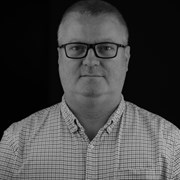
Andrew Lowe
Professor
Polymers, thermal insulation, coatings, chemistry, functional molecules, hybrid materials
View profile
Andrew Lowe
Professor
Prof. Lowe holds BSc (Hons), DPhil and DSc degrees from the University of Sussex, UK. In 1999 he moved to the US, initially as a post-doctoral researcher before accepting a tenure-track position in the Department of Chemistry and Biochemistry at the University of Southern Mississippi (USM). Following promotion and tenure, he subsequently moved to the University of New South Wales (2009) as a Full Professor in the School of Chemical Engineering where he was affiliated with the Centre for Advanced Macromolecular Design. In 2015, he moved to Curtin University as Director of the Nanochemistry Research Institute (subsequently renamed the Curtin Institute for Functional Molecules and Interfaces).
Prof. Lowe’s research interests cover controlled polymerisation processes (RAFT, ROMP, Rh-mediated insertion polymerisation), polymer modification via click and click-like chemistries, water-soluble (co)polymers, stimulus-responsive (co)polymers and polymer-metal hybrid materials.
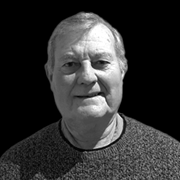
Bruce Hinton
Adjunct Professor
Stress corrosion cracking, corrosion fatigue racking, hydrogen embrittlement, corrosion inhibition and failure analysis.
View profile
Bruce Hinton
Adjunct Professor
Bruce Hinton graduated with an Honours Degree from the University of Queensland Department of Mining and Metallurgical Engineering in 1968. He was appointed as an Experimental Officer at the Department of Defence Aeronautical Research Laboratory (ARL) Fisherman’s Bend in 1969. From 1969 to 1975 he conducted investigations into failed aircraft components for the RAAF and the Department of Civil Aviation. These failures were the result of various corrosion processes including stress corrosion cracking, hydrogen embrittlement, corrosion fatigue, wear, intergranular and galvanic corrosion, as well as creep, fatigue cracking and ductile fracture.
In 1975 he began research into the stress corrosion cracking of high strength aluminium alloys in aircraft operating environments, and this continued until 1977 when Bruce was awarded an Australian Public Service Board Scholarship to study for a PhD at the University of Manchester, Institute of Technology (UMIST), Corrosion and Protection Centre. His research was looking at the effects of cathodic protection on the hydrogen embrittlement and corrosion fatigue of X65 pipeline steel. Bruce was awarded a PhD in Corrosion Engineering in late 1980.
He returned to ARL at the end 1980 and established a small research group working in the area of no-toxic corrosion inhibitors for aluminium alloys. In 1983, they found that the salts of the Rare Earth Metals (REM) in particular Cerium proved to be very good corrosion inhibitors.
In 1992, Bruce was promoted to Principal Research Scientist and Head of the Aircraft Corrosion Control Group within the Aircraft Materials Division of Defence Science and Technology Organisation (DSTO). The purpose of the Group was to focus solving and preventing corrosion problems on Air Force, Army and Navy aircraft and component failure investigations.
His Group set about developing products, processes and procedures to be adopted by aircraft maintenance units within the ADF to prevent corrosion on aircraft structure. Over the years the Group had many successes, including the identification of aircraft washing detergents with excellent corrosion inhibiting properties. The development of an environment monitor based on galvanic principles was installed in aircraft structures to identify the times of wetness in areas of aircraft structures susceptible to corrosion damage, a corrosion sensor based on linear polarisation resistance which measured corrosion rates in situ in aircraft structure. With CSIRO the Group developed a corrosion prediction model for aircraft structures for BAE Systems.
During the course of his career, Bruce has received several awards and honours, the highlights of which are the ACA Corrosion Medal, the BAE Systems Chairman’s Award for Innovation, the Minister of Defence Award for Achievement in Defence Science, the Florence Taylor Medal from the Institute of Metals and the NACE F N Speller Award. None of those awards would have been possible without the high calibre of people who, over the years, made up the Aircraft Corrosion Control Group at DSTO.
In 2010 after 41 years at DSTO Bruce retired. After retirement Bruce was very fortunate to be appointed as an Adjunct Professor at both Monash University and Deakin University. He continues research in most areas of corrosion, mentors and co-supervises post graduate students, and gives regular lectures on aircraft corrosion control to undergraduate students.
In 2012 Bruce set up his corrosion consultancy company, B. Hinton Corrosion Control, and has continued to successfully work on projects in the offshore, agricultural industry and water treatment industries.
Bruce has been a member of the ACA since 1982. During the past 37 years, he has served on the Victorian Branch Committee, contributed to the organisation of several annual Conferences and was Conference Technical Chair in 2017. He has been Research Editor of “Corrosion and Materials” and Chair of the ACA Awards Committee. He is a Life member of the ACA, a P F Thompson Lecturer and ACA Corrosion Medallist.
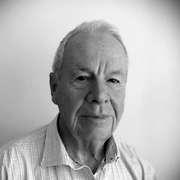
Greg Moore
Applied science, water and wastewater, desalination, metallic and non-metallic materials.
View profile
Greg Moore
Greg holds a Bachelor of Applied Science in Secondary Metallurgy from the University of South Australia. He is a Durability and Corrosion Specialist and has worked in the water industry for the South Australian Water Corporation and for a number of consulting engineers including Jacobs, Aecom, Inside Infrastructure (A Ricardo Company) and Vinsi Partners During this time he has provided specialist materials, durability and corrosion advice for projects in the water, wastewater and related industries including but not limited to, desalination and high salinity environments, roads and bridges, metallic and non-metallic materials. He is a recipient of the Australasian Corrosion Association (ACA) Medal for outstanding scientific or technological work in the field of corrosion in Australasia, and is an ACA Life Member.
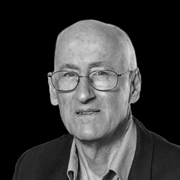
Rob Francis
Corrosion science, metallurgy, atmospheric corrosivity.
View profile
Rob Francis
Dr Rob Francis obtained a B.Sc. in metallurgy from the University of Melbourne and has a Ph.D. in corrosion science from the Corrosion and Protection Centre at the University of Manchester, UK. He has over 45 years’ experience in metals, materials and corrosion, especially regarding protective coatings. He is an Australasian Corrosion Association Corrosion Technologist and Coating Inspector and is Chairman of Standards Australia committee MT14/2, which has developed AS/NZS 2312 on the selection and application of protective coatings. Rob won the ACA’s Best Review paper in 2009 for a paper comparing the content of AS/NZS 2312 to that of its international equivalent, ISO 12944. He is also Chairman of Committee MT 14/5 which produced AS 4312 on atmospheric corrosivity zones in Australia. He is on a number of other corrosion-related standards committees.
Dr Francis edited the ACA publication “Inorganic Zinc Coatings – History, Chemistry, Properties, Applications and Alternatives." He has been awarded the Journal of protective Coatings and Linings editor’s award twice and was made a JPCL Top Thinker in 2012. He was awarded the ACA Victor Nightingall award in 2014 and ACA Life Membership in 2016.
Collaborators
Our national and international collaborators enrich the Centre, contributing world-class expertise in corrosion.
Students
Meet the next generation of corrosion and materials experts and leaders.

Janice Xin Yee
PhD Student
Coating degradation – QEERI-Curtin Alliance
View profile
Janice Xin Yee
PhD Student
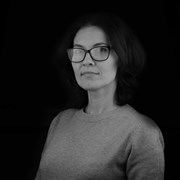
Antonina Puzyrova
PhD Student
View profile
Antonina Puzyrova
PhD Student
Thesis title: Biofilm Inhibition to Control MIC in the Oil and Gas Industry
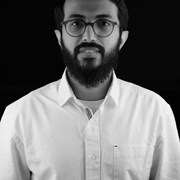
Ahmed Abdulmutaali
PhD Student
View profile
Ahmed Abdulmutaali
PhD Student
Thesis title: Electrochemical Noise and Machine Learning Approach to Assess Corrosion at Welded Steels
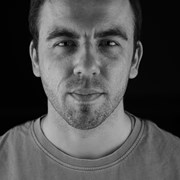
Alex Kovacs
PhD Student
Hydrogen embrittlement behaviour of nickel-based alloys additively manufactured using powder based fusion methods.
View profile
Alex Kovacs
PhD Student
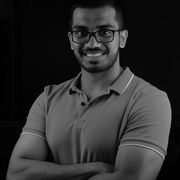
Praveen Weerakkody
PhD Student
Thesis title: Understanding the Effect of Ni on the Surface Film Formation and Trench/Crack Morphologies of High Strength Low Alloy Steels
Supervisory committee: Katerina Lepkova; Ke Wang; Mariano Iannuzzi; Hanan Farhat

Praveen Weerakkody
PhD Student
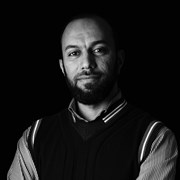
Ahmed Elsayed Reyad Mohamed
PhD Student
Pushing the boundaries of corrosion resistant alloys in seawater applications.
View profile
Ahmed Elsayed Reyad Mohamed
PhD Student

Shahid Mohamed Parapurath
Understanding the hydrogen embrittlement behaviour of welded high strength low alloy steels.
View profile
Shahid Mohamed Parapurath
Understanding the hydrogen embrittlement behaviour of welded high strength low alloy steels.


